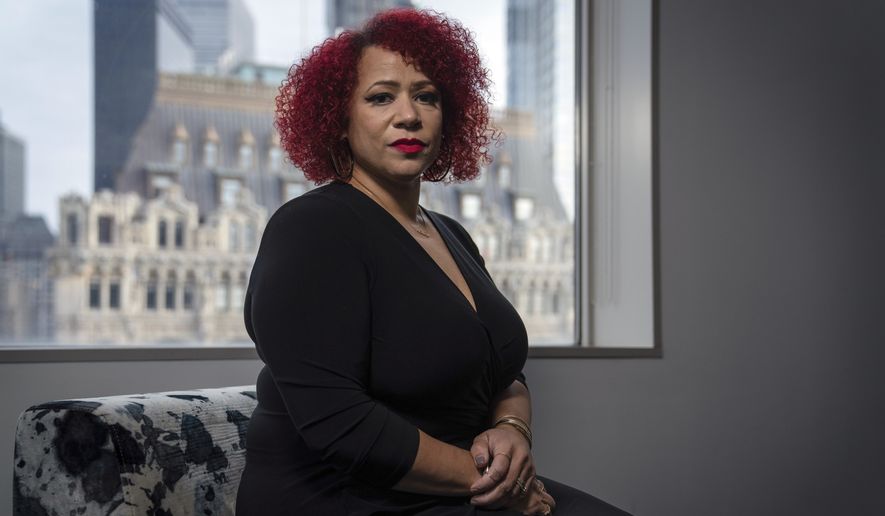ANALYSIS
No publication in recent memory has provoked more debate and political hand-wringing than the New York Times’ 1619 Project. Both professional historians and conservative politicians attacked the Pulitzer Prize-winning project for its specious claims about the American Revolution and capitalism, to name two issues, and – as some on the right have suggested – for trying to smuggle divisive concepts into classrooms. This idea prompted Republican lawmakers in a number of states to propose legislation banning it from public school curricula.
The debate is back with the premier of the 1619 Project’s Hulu docuseries. Its first episode, “Democracy,” is partly filmed in Williamsburg, Virginia, outside the royal governor’s palace. This is the backdrop where 1619 creator Nikole Hannah-Jones and historian Woody Holton talk about the role of slaves in the Revolutionary War, returning to one of the project’s most controversial claims: that some colonists broke with the crown because Lord Dunmore, the last royal governor of Virginia, in November 1775, offered freedom to the slaves of rebels who fled to the British and agreed to take up arms – to help put down a revolt already underway.
While beautifully produced and brilliantly marketed, the “Democracy” episode botched this chapter of U.S. history – and it’s not a minor mistake. If the 1619 Project cannot accurately convey the significance of Dunmore’s Proclamation in something of such surpassing importance as the American Revolution, then it is distorting rather than illuminating the past. Simply put, the revolution was not a pro-slavery reaction to any British designs to undermine slavery in the colonies, because no such designs existed.
In this episode of History As It Happens, economic historian Phil Magness of the American Institute for Economic Research, a conservative, free-market think tank, discusses the docuseries’ problematic segments about the Revolutionary War, slavery and the development of capitalism.
“I think the ideological question that has played out in the 1619 Project from the beginning has been the driving motive here. It’s taking historical events, some of which have kernels of truth behind them, some of which are actually necessary reinvestigations of the past, but that is not the object here. The object here is to take those events and try to interpret politics in the 2020s,” Mr. Magness said.
Listen to Mr. Magness discuss the 1619 Project by downloading this episode of History As It Happens.




